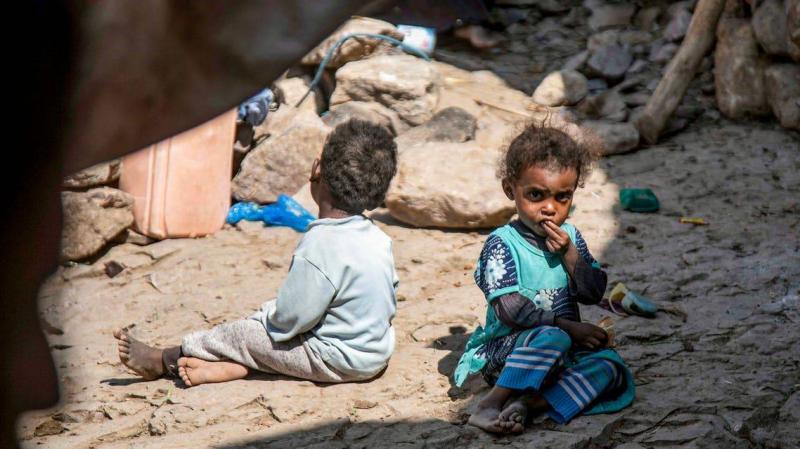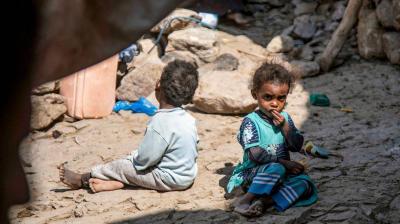The United States announced on Monday the provision of an additional $165 million in aid for Yemen, which is facing the worst humanitarian crisis in the world. U.S. envoy for Yemen, Tim Lenderking, stated in a press briefing that "we believe that taking immediate steps to alleviate the humanitarian crisis and save lives can contribute to progress in the peace process." He added, "For this reason, the United States today announces $165 million in additional humanitarian assistance for Yemen."
The conflict in Yemen erupted in 2014 after Iran-backed rebels took control of the capital, Sana'a, facing off against government forces supported by Saudi Arabia. The Houthis control the majority of northern Yemen. The conflict has caused what the United Nations considers the biggest humanitarian crisis globally, stating in March that over 16 million people out of 29 million will face hunger this year, with around 50,000 Yemenis "already dying from starvation under conditions resembling famine."
Additionally, UN agencies warn that 400,000 children under five are at risk of dying from acute malnutrition in 2021, representing a 22 percent increase compared to 2020. Around 100 countries and donor organizations participated in a virtual conference organized by the UN, Sweden, and Switzerland in March. The organization appealed for generous donations to raise $3.85 billion to fund relief operations in the poorest country on the Arabian Peninsula, but total pledges amounted to about $1.7 billion, including $191 million from the United States.
Lenderking mentioned on Monday, "Clearly, the United States cannot do this alone," referring to alleviating the crisis's impacts, adding that "therefore, other donors, particularly regional donors, must increase their contributions." He urged the parties involved in the conflict to seize the current international momentum to come to the negotiating table and expressed hope that the "stalemate on the ground" would particularly encourage the Houthi rebels to agree to negotiations.
This comes at a time when the local currency faces unprecedented collapse, especially in government-controlled areas in the south, leading to a recent increase in customs duties.




